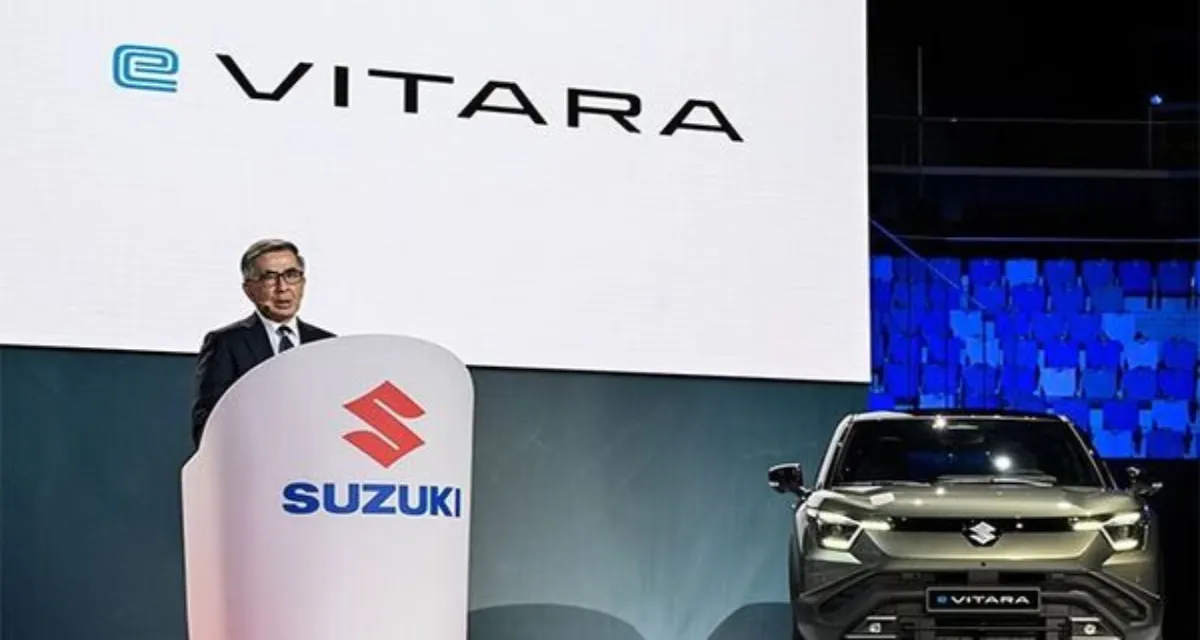

In light of recent market shifts, Suzuki Motor Corporation has signaled a more cautious approach to launching its electric vehicles (EVs) in Europe. Toshihiro Suzuki, President of Suzuki, recently revealed that although Suzuki had ambitious plans for an EV lineup by 2030, these launches may be delayed or revised in response to sluggish EV sales, reduced incentives, and increased competition from affordable Chinese EVs. Suzuki’s first electric model, the India-manufactured e Vitara, debuted in early November and will reach Europe in the coming months, but additional EV releases remain in limbo.
Suzuki’s entry into the European EV market was intended to be part of a $35 billion investment to position the automaker as a formidable player in the electric mobility arena. Five EV models were initially planned, aimed at replacing the S-Cross crossover and Ignis models, among others. However, as Toshihiro Suzuki shared with Autocar UK, the market’s current dynamics have altered Suzuki’s launch strategy.
“The sales of battery electric vehicles (BEVs) are slowing down, and affordable EVs from China are entering the market at a rapid pace,” said Suzuki, highlighting how the situation has added pressure for automakers to re-evaluate their EV strategies. Chinese manufacturers are gaining traction in Europe, particularly in budget-friendly EV segments where Suzuki planned to compete. With local European governments rolling back EV incentives, companies like Suzuki are grappling with how to make their EVs both competitive and profitable in this shifting landscape.
Toshihiro Suzuki emphasized that, although the brand is cautious about introducing new EVs in Europe immediately, it remains committed to EV development overall. The recent e Vitara model, which debuted on November 4, is an example of Suzuki’s continued efforts to enter the EV market, and it will be followed by more models as the market allows. However, Suzuki has not committed to specific dates or timelines for its remaining EVs, preferring to “monitor the market” before confirming further launches.
To underscore this cautious approach, Suzuki shared that the company is paying close attention to the e Vitara’s sales performance in Europe. This model will serve as a litmus test for market demand and consumer response to Suzuki’s EV offerings. Additionally, Suzuki hinted that the next EV model for Europe will likely be smaller than the e Vitara, possibly addressing urban mobility demands, though the launch timeline remains uncertain.
While EVs remain a priority, Suzuki is not relying solely on electric solutions to meet its sustainability goals. As Toshihiro Suzuki pointed out, the company is “not going to concentrate on just EVs,” instead opting for a varied approach that includes hybrids, e-fuels, and biogas technologies. This strategy aligns with Suzuki’s market positioning in regions like India, where infrastructure and consumer preferences are still evolving and may favor alternative solutions over BEVs in the short term.
In particular, biogas has emerged as an intriguing alternative for Suzuki in India. The automaker believes that biogas can offer a renewable and cost-effective solution in rural areas where infrastructure for EVs and hybrids may not yet be fully developed. This multifaceted approach allows Suzuki to pursue electrification without overcommitting in markets where the viability of EV-only options is still uncertain.
While Suzuki reconsiders its approach in Europe, the e Vitara is expected to make waves in India, where the EV market is expanding steadily. The model will compete with upcoming models like Hyundai’s Creta EV and Tata’s Curvv EV in India’s burgeoning midsize electric SUV segment. Scheduled for release in March, the e Vitara will also form the basis for a Toyota derivative, expected to debut shortly after. This partnership with Toyota showcases Suzuki’s collaborative efforts to scale its EV lineup and penetrate diverse markets through shared technology and platform development.
Suzuki’s more reserved approach in Europe reflects a growing awareness of the challenges facing the global EV market. With competition intensifying and government policies in flux, Suzuki’s strategy exemplifies the cautious optimism necessary to navigate an unpredictable industry landscape. While this means Suzuki’s European EV expansion may be slower than originally intended, it also underscores the company’s flexibility in adjusting to market demands.
For Suzuki, the road ahead may include an assortment of hybrids, biogas solutions, and EVs, each tailored to fit the distinct needs of various global markets. Rather than charging full speed ahead, Suzuki’s decision to “monitor the market” signals a pragmatic approach in an industry where change is the only constant.
As the e Vitara hits European and Indian showrooms in the coming months, Suzuki’s ability to read and respond to market trends will be put to the test. For now, however, Suzuki’s pivot away from an EV-only future underscores an important message: innovation in the auto industry requires not just foresight but also adaptability.
Also Read: